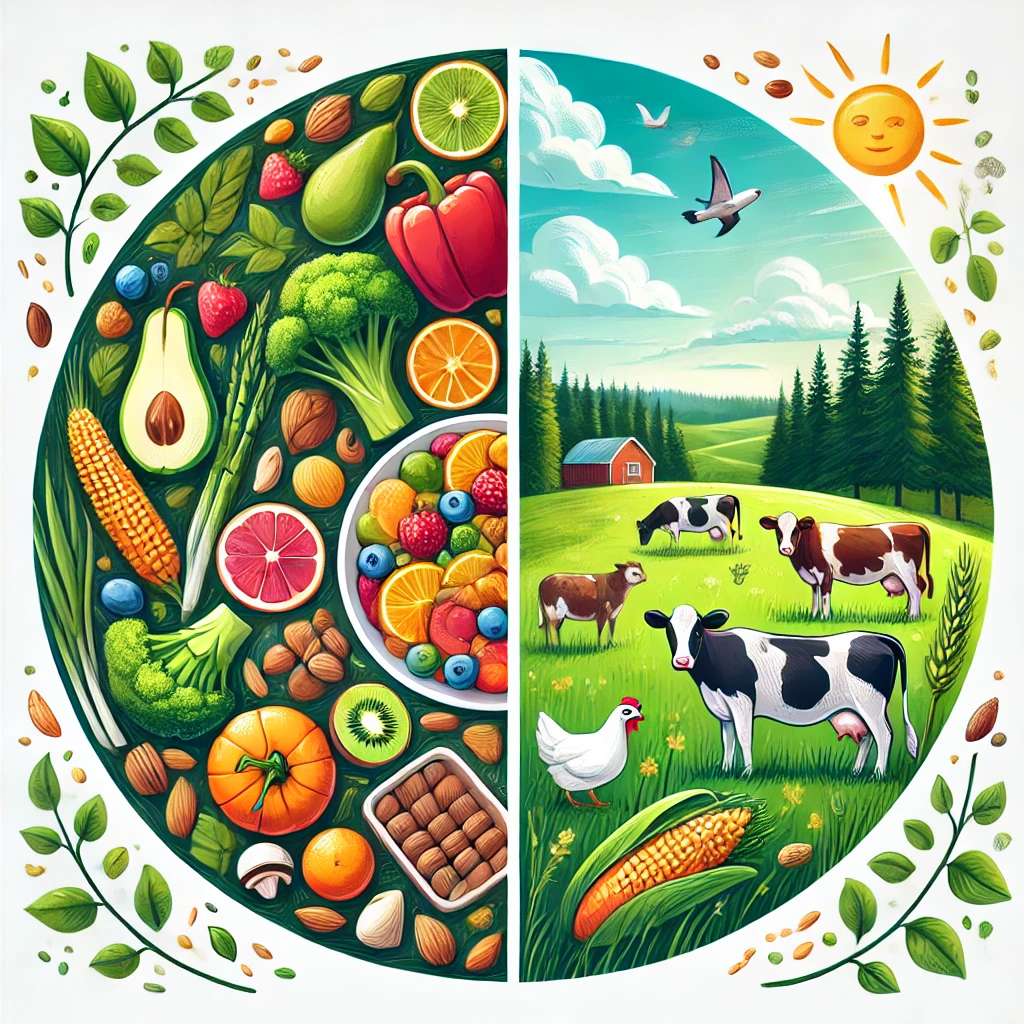Now, let’s talk about the good stuff first. If you’re a friend of furry critters, veganism can be a winner. No animal products means no animals are harmed for your dinner. That’s a big thumbs up for our four-legged, winged, and finned friends.
Veganism can also be a superhero for the planet. The meat and dairy industry is a bit of a greenhouse gas monster, belching out more emissions than all the world’s cars, planes, and trains combined. Plant-based diets, on the other hand, leave a smaller carbon footprint.
Plus, there are potential health benefits to consider. A well-planned vegan diet can be high in fiber, rich in antioxidants, and low in saturated fat. We’re talking potential lower risk of heart disease, certain cancers, and type 2 diabetes. Sounds pretty cool, right?
But hold onto your broccoli, because veganism has its downsides too. The most notorious baddie in the vegan plot is nutrient deficiency. Key nutrients like vitamin B12, iron, and omega-3 fatty acids are naturally found in animal products, and can be trickier (though not impossible) to get from plants alone. Supplementing might become your new hobby if you decide to go full plant power.
Also, let’s face it, vegan diets can be high maintenance. Try finding a vegan option at a barbecue or a small-town diner, and you might end up with a side salad and a bowl of fries. And you better get used to reading food labels like a detective because animal products can sneak into the strangest places (gelatin in candies, I’m looking at you).
Finally, for all you foodies out there, there are some things that plant-based alternatives just can’t replicate. Vegan cheese, despite the leaps and bounds it’s made, still struggles to melt into that gooey goodness we know and love.
In conclusion, veganism is like a giant veggie stir-fry – it might be your idea of heaven, or it might leave you craving a steak. Whatever your diet, the key is balance, variety, and making sure you’re getting all the nutrients you need. If you decide to hop onto the vegan bandwagon, more power to you! If not, that’s cool too. You do you! Until next time, folks, happy munching!
Sources of Information:
- Parker, H.W., Vadiveloo, M.K. (2019). “Dietary Quality of Vegetarian Diets: A Systematic Review.” Nutrition Reviews, 77(3), 109-129.
- Poore, J., Nemecek, T. (2018). “Reducing food’s environmental impacts through producers and consumers.” Science, 360(6392), 987-992.
- Craig, W.J., Mangels, A.R. (2009). “Position of the American Dietetic Association: Vegetarian Diets.” Journal of the Academy of Nutrition and Dietetics, 109(7), 1266-1282.
- Fuhrman, J., Ferreri, D.M. (2010). “Fueling the Vegan Athlete.” Current Sports Medicine Reports, 9(4), 233-241.
Medical Disclaimer:
This content is for informational purposes only and should not be considered medical advice. Always consult a healthcare provider before making significant dietary changes, especially if you have pre-existing health conditions or specific nutritional needs. A healthcare professional can help you create a balanced plan that ensures adequate nutrient intake for your personal needs.

